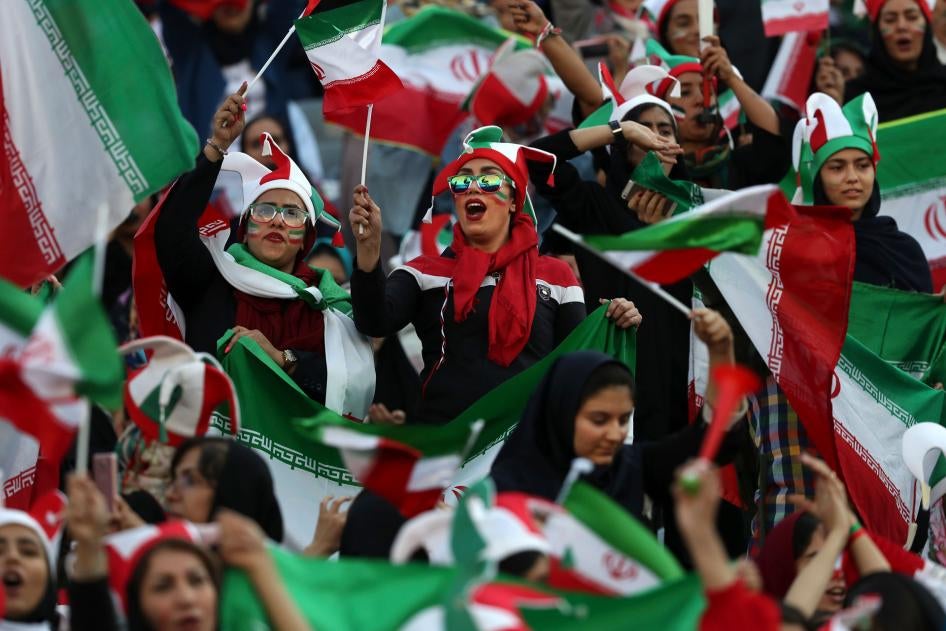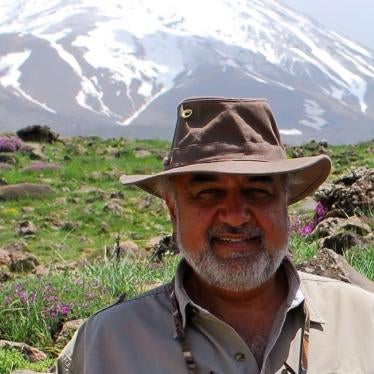Iranian authorities once again prevented women and girls from entering a sports stadium.
Iran’s football team played Lebanon in a FIFA World Cup Qatar 2022 qualifying match in the city of Mashhad last week. But authorities prevented dozens of women who had reportedly purchased tickets from entering the stadium.
Additionally, videos circulating on social media suggested that some women outside the stadium were possibly attacked with pepper spray.
Iranian women have been campaigning against the government’s stadium ban for more than 15 years. Under pressure from Iranian women, in 2019 FIFA, football’s governing body, finally set a deadline for Iranian authorities to allow women into stadiums. One month later, Iran’s government permitted a limited number of women to attend a World Cup qualifier match at Azadi Stadium. Since then, Iranian officials have used various tactics to keep women from watching matches at stadiums.
What was the excuse this time? The Iranian Football Federation issued a statement claiming, without evidence, that “fake” tickets were distributed among fans.
Yet Iranian authorities’ refusal to overturn the stadium ban has actually helped grow the cause – not only among women, but also among athletes and male sports fans.
On March 30, the day after the Iran-Lebanon match, Karzar, a popular domestic Iranian online petitioning platform, launched a petition asking President Ebrahim Raisi to investigate the incident.
In a video circulated on social media on March 31, male football fans in Isfahan football stadium sang together, “There is no difference between men and women, we all love football.” Amir Hossein Sadeghi, a former Iranian football player, said in an Instagram story that he won’t go to a stadium until women are allowed too. People speaking out against the ban included Voria Ghafoori, who both plays for the national football team and captains an extremely popular team in Iran’s football league, and Ali Daei, the legendary football player who attended the World Cup final draw in Doha. Both called the events in Mashhad “shameful.”
Despite the restrictions, and the risks to their safety when they speak against the government, Iranian women have become more innovative and outspoken in demanding their rights.
Iranian authorities should stop fighting this discriminatory and losing battle and overturn this ban. FIFA should support Iranian women in demanding their rights and not let one of its members violate FIFA’s own rules of equal access to stadiums and sports events for men and women.









